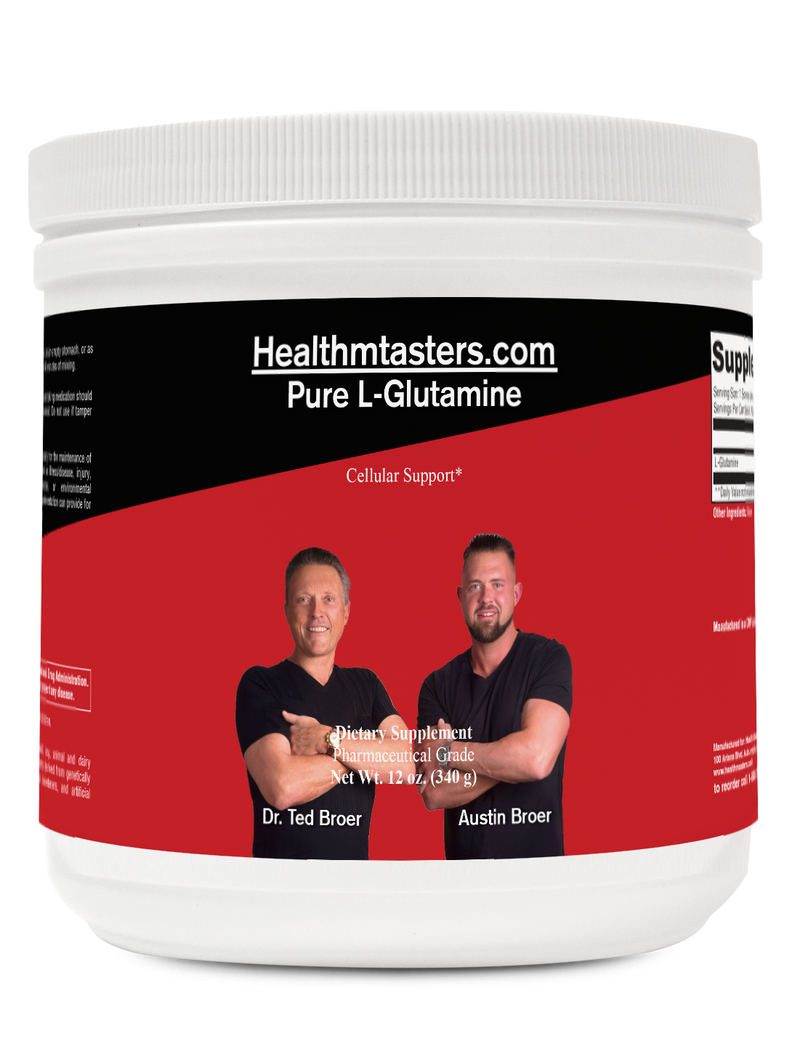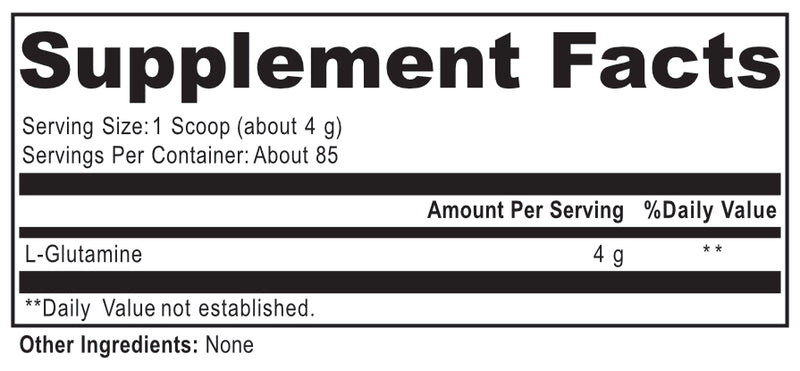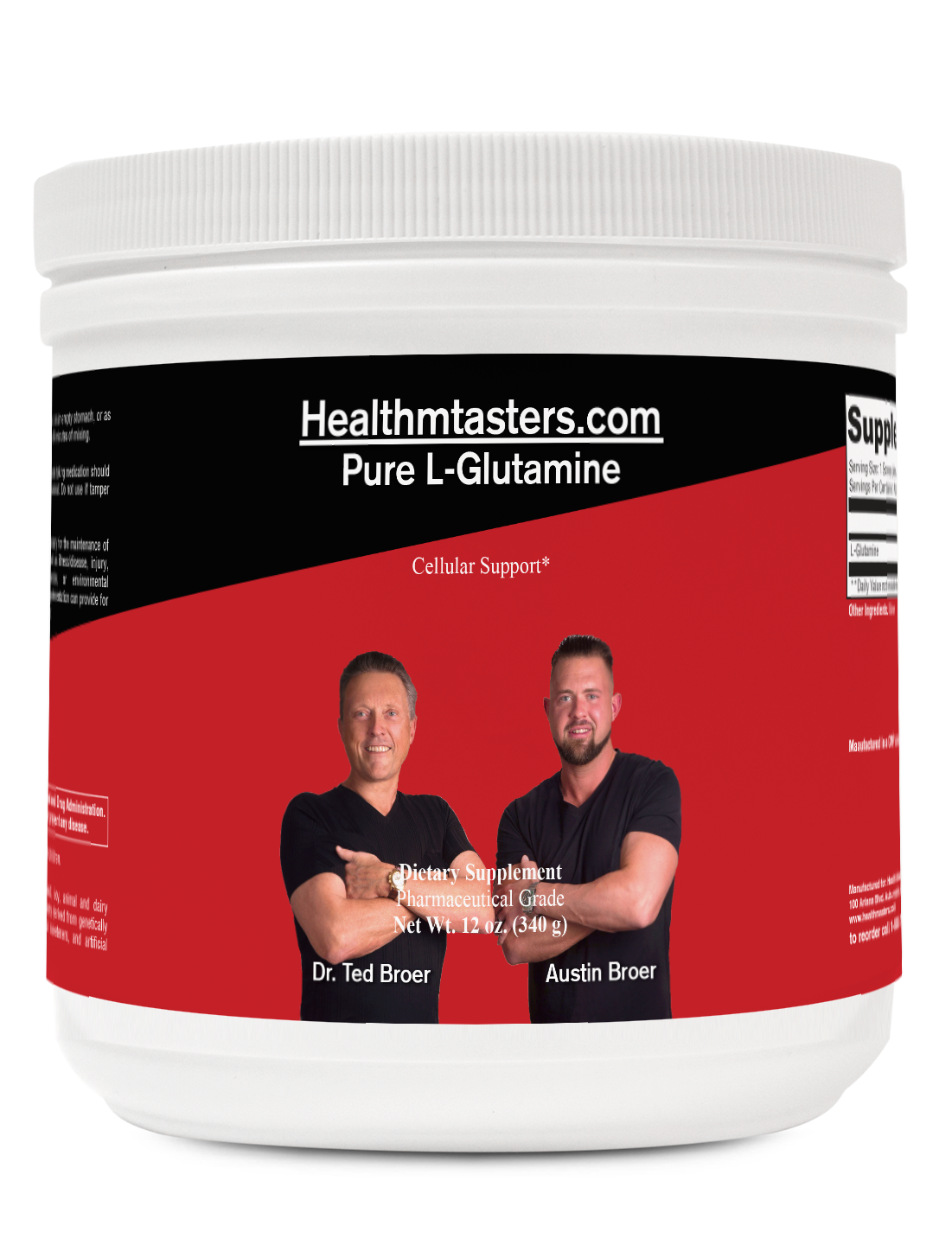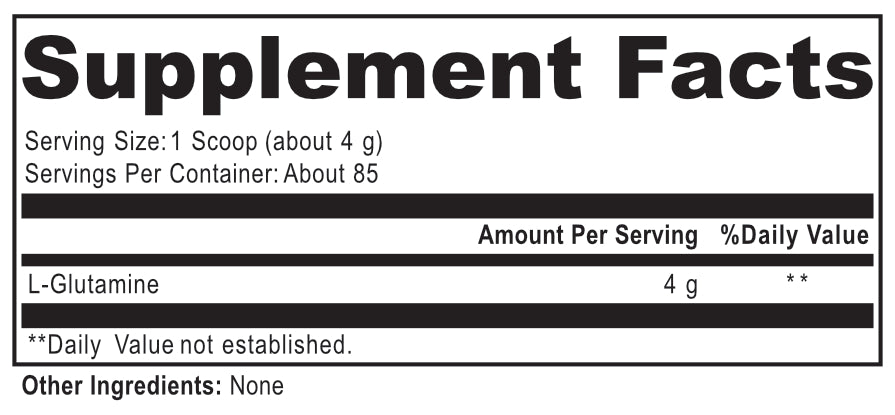L-Glutamine — Recovery, Gut, Immune & Muscle Preservation Support
L-Glutamine is a conditionally essential amino acid that plays a vital role in recovery, gut integrity, immune function, and muscle preservation. During times of physical stress, intense training, illness, or injury, your body demands more glutamine than it can naturally produce — making supplementation essential for optimal performance and healing.
L-Glutamine fuels intestinal cells, helping maintain a strong gut lining and supporting proper nutrient absorption while promoting a healthy digestive barrier against pathogens and toxins. It also supports the production of glutathione, the body's master antioxidant, providing cellular protection from oxidative stress and inflammation.
For athletes, active individuals, or anyone recovering from physical or emotional stress, L-Glutamine helps preserve lean muscle mass, speed recovery, support immune resilience, and promote overall wellness.
Key Benefits:
-
Speeds recovery after workouts, injury, illness, or stress
-
Supports gut health, intestinal lining integrity, and nutrient absorption
-
Preserves lean muscle mass and promotes muscle repair
-
Boosts immune function and strengthens defenses during periods of stress
-
Enhances glutathione production for antioxidant protection and cellular repair
-
Supports overall resilience, vitality, and performance
Whether you’re an athlete looking to optimize recovery or simply seeking better gut and immune health, L-Glutamine is a powerful daily ally for total body restoration.



